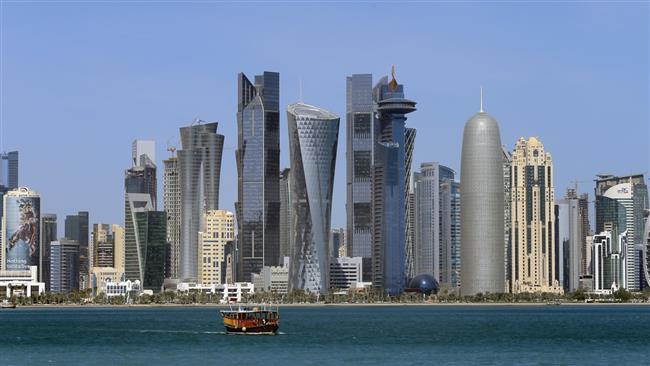Study shows Qatar unaffected by Saudi-led blockade
A new study shows Qatar’s economy has been largely unaffected by a Saudi-led blockade imposed since August last year.
The study which was carried out by the independent London-based research firm Capital Economics said the blockade had only affected the Persian Gulf state’s tourism and real estate sectors. However, its economy had been able to maintain positive growth in the seven months since Saudi Arabia, the United Arab Emirates, Bahrain and Egypt imposed an air and land siege on it, AFP reported.
"Recently-released national accounts data confirmed that Qatar avoided the worst fears that the diplomatic crisis would plunge its economy into recession," the firm said in a report on the results of the study.
The economy of the gas-rich state grew by 1.9 percent in the third quarter of last year, up from 0.3 percent in the previous quarter, it said.
Growth of the non-hydrocarbon sector, which is more vulnerable to the blockade, remained unchanged at 3.2 percent in the third quarter.
Back in June, Saudi Arabia, Egypt, Bahrain, and the United Arab Emirates (UAE) imposed a trade and diplomatic embargo on Qatar, accusing Doha of supporting terrorism, an allegation strongly denied by the emirate.
The Saudi-led bloc presented Qatar with a list of demands, among them downgrading ties with Iran, and gave it an ultimatum to comply with them or face consequences. Doha, however, refused to meet the demands and said that they were meant to force the country to surrender its sovereignty.
The foreign liabilities of Qatari banks rose in November for the first time in six months, a sign that domestic banks have secured additional financing from foreign banks, Capital Economics said in its study.
However, it added that the tourism sector has been hit hard, with visitor arrivals down 20 percent in November compared to the previous year.
Flights into Qatar were down 25 percent and flights by Qatar Airways were cut 20 percent in the same period.
Capital Economics estimated that tourism receipts between the start of the blockade in June and end of 2017 dropped $600 million compared to the previous year.
Real estate prices also fell by 9.9 percent.
VIDEO | Yemenis praise the military for its successful operations against Israel
VIDEO | Israel continues to bomb Gaza homes
VIDEO | An insider's view of the country: Meybod City in Yazd
‘All wars have rules. All of those rules have been broken’ by Israel
VIDEO | Report flags India’s violation of rights of Rohingya detainees
Turkey's foreign minister meets Syria's de facto leader in Damascus
VIDEO | US Syria plots
'Next to impossible' to rescue patients from Gaza's Kamal Adwan Hospital: Director










 This makes it easy to access the Press TV website
This makes it easy to access the Press TV website